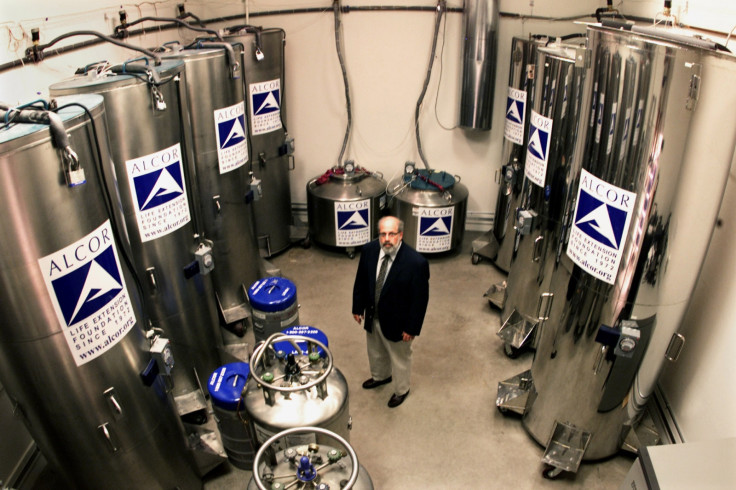Company offers its employees bonus of eternal life with cryonic freezing perk if they die at work
Hedge fund firm Numerai looks to lure applicants with benefit of body preservation.

If you thought the free fruit in your office was a great perk, one company is taking employee benefits to the next level by offering its staff the option to cryonically freeze and revive them if they die.
Numerai, a San Francisco-based hedge fund built by data scientists and powered by artificial intelligence, is shifting the goalposts of healthcare plans by allowing employees the chance to be put in cryonic storage in the event of death with the hope of being revived in the future when medical technology and nanoscience have developed to bring them back to life.
Founder of Numerai, South African mathematician Richard Craib, made the announcement through a tweet advertising a job position within the company that listed "whole-body preservation cryonics" as a benefit. The idea started as a joke but Craib (who himself has signed up for the deep freeze) has decided to put the offer in action in the hope it will attract "interesting people" to the company.
Employees that sign up for a life insurance policy with Numerai who happen to pass away during employment will have their body sent to Alcor – a company specialising in life extension through the experimental procedure of cryonics — where they will be stored in liquid nitrogen at -196°C in aluminium storage containers for an indefinite period of time.
Alcor's website claims the company "intervenes in the dying process as soon as possible after legal death to preserve the brain as well as possible. [It] seeks to prevent loss of information within the brain that encodes memory and personal identity."
However, employees hoping they may be bought back to life following a fatality anytime soon may have a long wait. Alcor claims "it is not yet possible to revive human brains cryopreserved with present methods".
"Revival of today's cryonics patients will require future repair by highly advanced future technology, such as molecular nanotechnology. Technology that is advanced enough to repair a cryopreserved brain would by its nature also be able to regrow new tissues, organs, and a healthy body for the revived person."
Numerai now offers whole-body preservation cryonics as an employee benefit. Join us https://t.co/cIjT1nQBjH. Thanks for the idea @jason.
— Richard Craib (@richardcraib) 2 May 2017
Craib told IBTimes UK: "I signed up for Alcor in this way myself a few months ago. Other employees agreed with my reasoning that a small chance of revival is worth it. So we decided to offer it as a benefit. Numerai is a next generation hedge fund. We're doing a number of futuristic things in artificial intelligence, cryptography and cryptocurrency. The same people interest in our long term vision are also interested in cryonics."
"Not every employee will sign up. Since we announced this just a few days ago, my application is the only one that's complete. We have an impressive team with engineers from Apple and DeepMind," he added.
If the idea of eternal life and the chance to return to your mortal coil if you've already shuffled off it sounds appealing it does come with one caveat: "On revival, ideally the employees would return to work," said Craib.
© Copyright IBTimes 2025. All rights reserved.






















